The Science of Healing: Our Latest Edition
Download your copy of Newport Healthcare’s
Patient Outcomes and Key Findings.
The Science of Healing:
Our Latest Edition
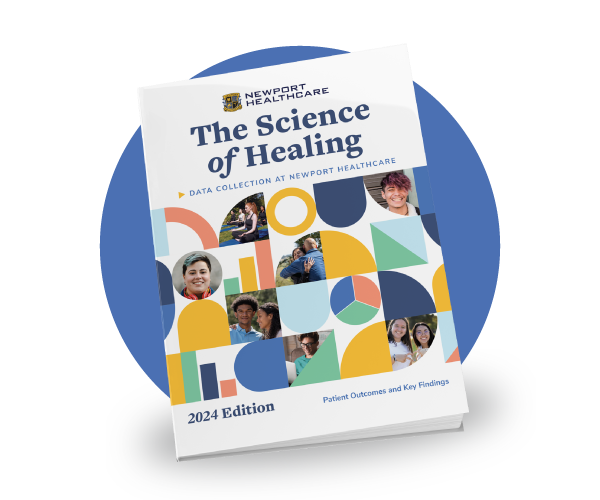
Read our latest research, including:
- How our treatment created 50% drops in depression and suicidal thoughts
- New this year: results for general functioning outcomes, OCD treatment, and post-discharge results
- Data on teen and young adult substance use, family relationships, gender identity, and more
- Why 99% of referring professionals will refer to us again
- Our alumni’s experience, in their own words
- Significant depression improvements in TMS patients at our PrairieCare division
Read our latest research, including:
- How our treatment created 50% drops in depression and suicidal thoughts
- New this year: results for general functioning outcomes, OCD treatment, and post-discharge results
- Data on teen and young adult substance use, family relationships, gender identity, and more
- Why 99% of referring professionals will refer to us again
- Our alumni’s experience, in their own words
- Significant depression improvements in TMS patients at our PrairieCare division
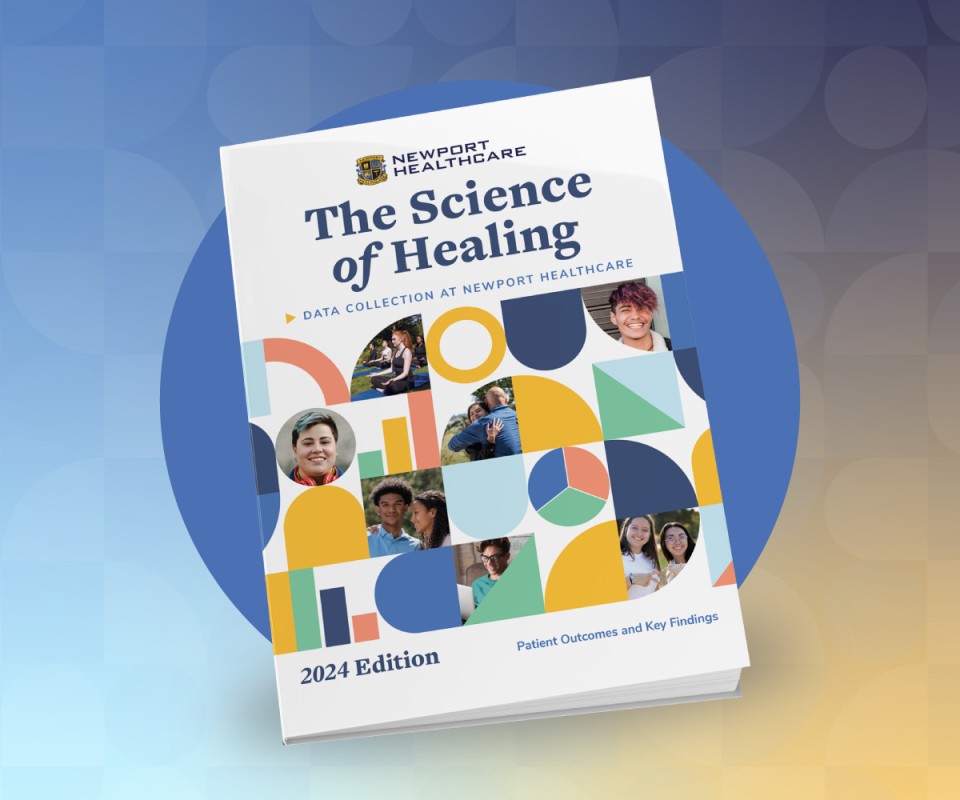
Highlights from the Report
Download the report to read details on our exceptional outcomes, see graphs, read patient testimonials, and learn how we achieve our industry-leading results.
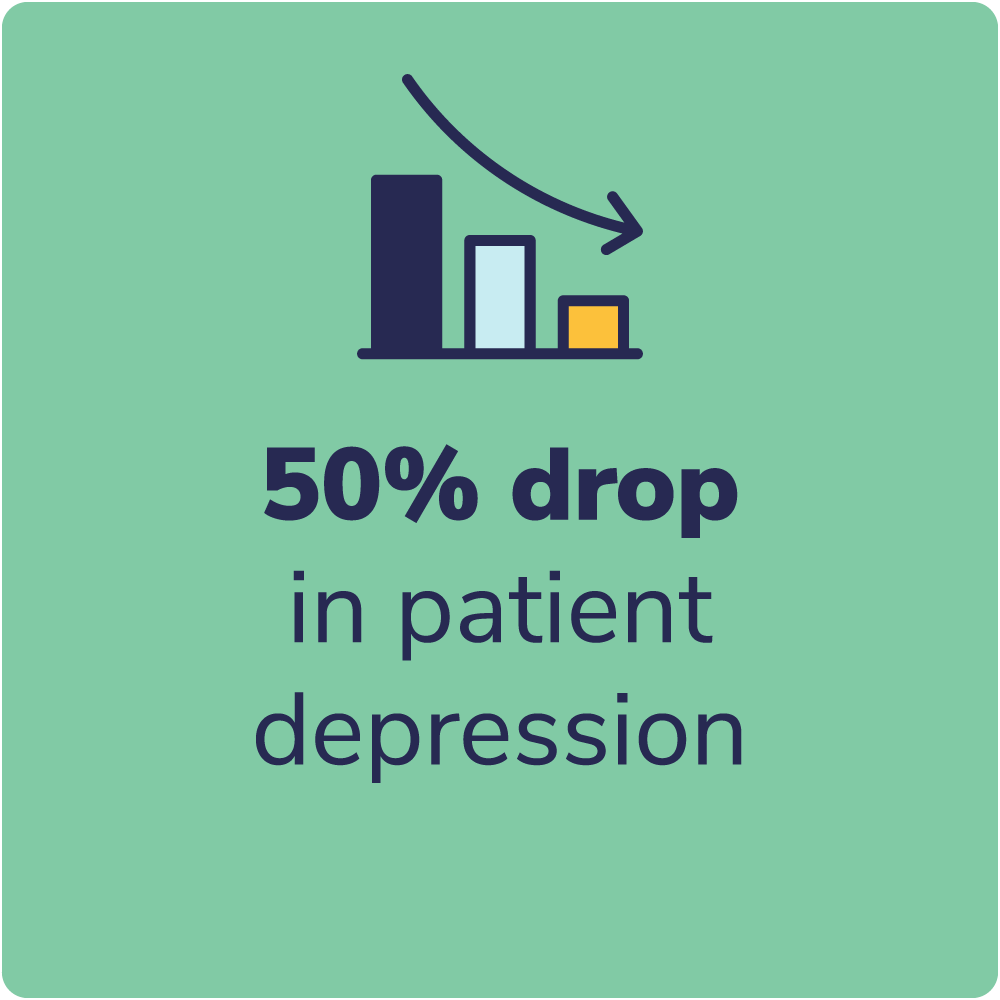
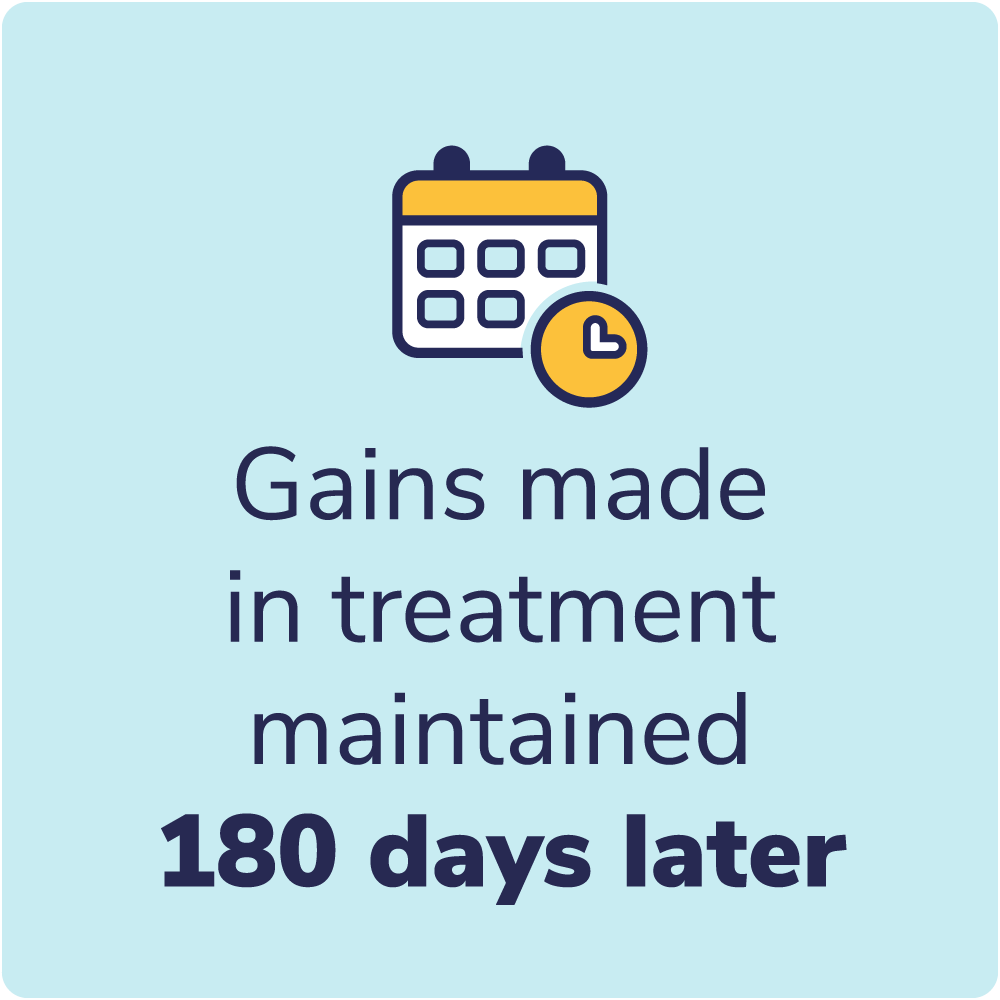
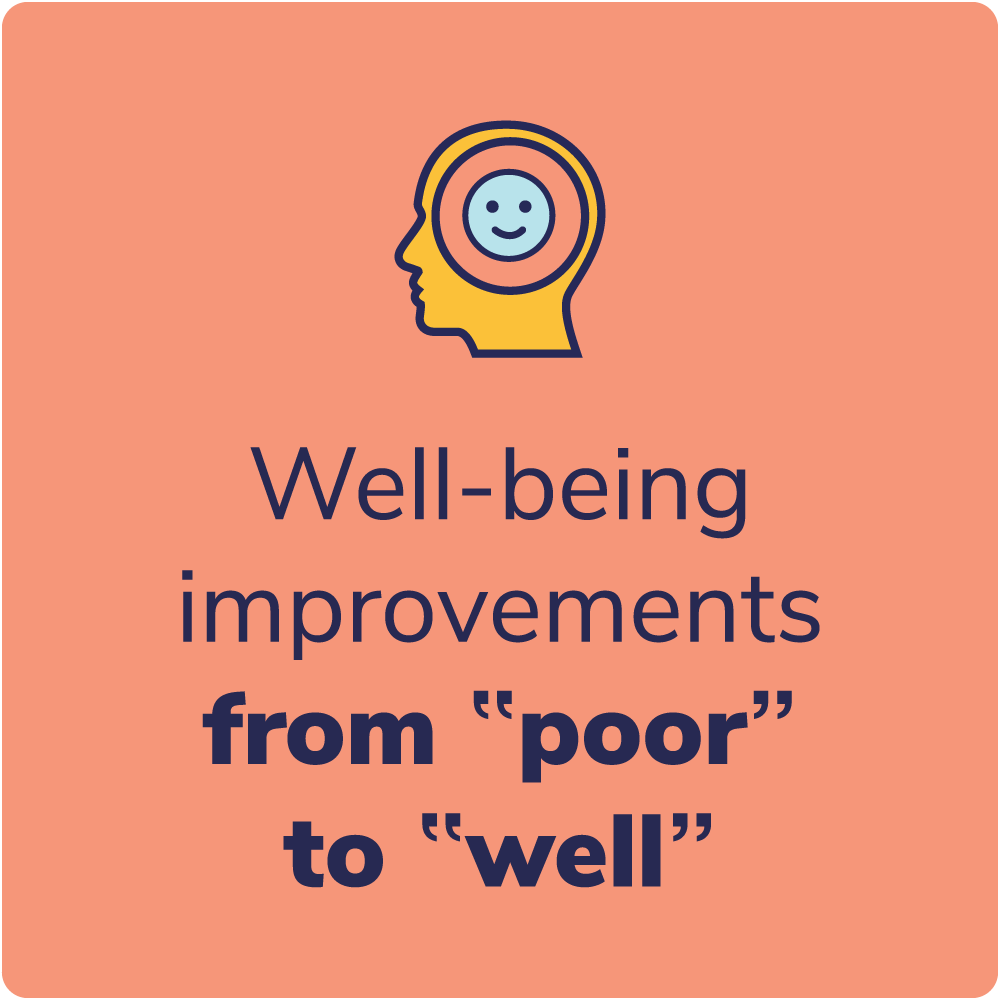
PATIENT PROFILES
Risk Factors + Symptomology
To deepen our insight into our patients’ experiences and challenges, our assessments ask patients about their exposure to various risk factors, including bullying and family conflict, and their engagement in potentially self-destructive behaviors, such as substance use.
Patient profile and outcomes data is compiled and analyzed by Newport’s Center for Research and Innovation.
1 in 4 Teens and 1 in 3 Young Adults
in residential care reported using substances to get high or relax.
60% of Adolescent Patients
reported experiences of verbal bullying and 30% reported cyberbullying.
7 out of 10 Teens & Young Adults
in outpatient care reported not getting along with their family.
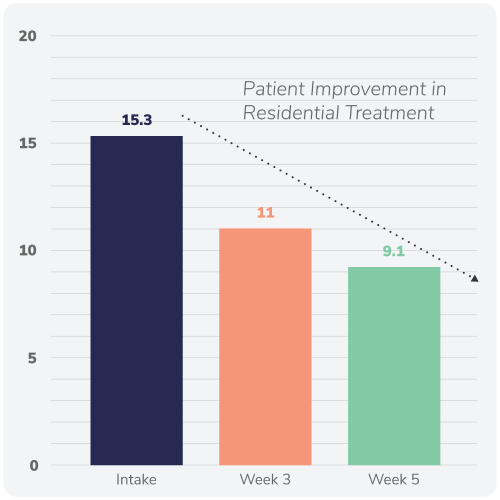
Anxiety outcomes in adolescent residential patients, as measured by the GAD-7.
Significant Improvements in Anxiety, Depression, and Well-Being
In 2024, Newport’s treatment yielded remarkable improvements in adolescent and young adult patients’ depressive and anxiety symptoms, subjective well-being, suicide risk, traumatic distress, and attachment to parents/caregivers.
Our care teams incorporate a wide variety of specializations—clinical, medical, psychiatric, experiential, dietary, life skills, and academic—to create transformative care experiences with exceptional results.
Long-Term, Sustainable Results
Post-discharge data shows that both teens and young adults maintained improvements, on average, after treatment, with all measures consistent or improved between day 30 and day 180. The data illustrates that the changes patients make within safe and caring therapeutic environments lead to long-term positive outcomes.
The chart shows young adult patients’ scores, on average, from intake through nine months after.
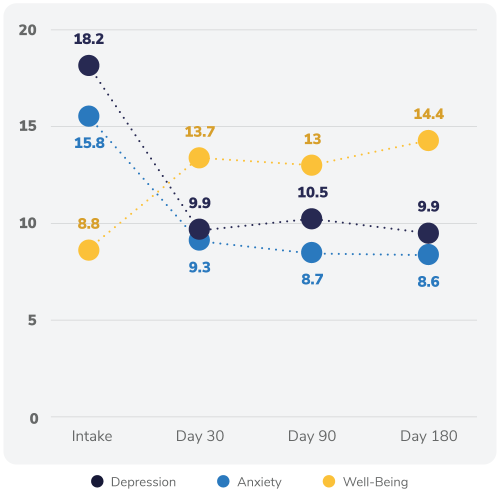
The Alumni Experience
“I miss Newport all the time—it even makes me emotional. The staff were life changing and truly believed in me. I read my goodbye letters whenever I need motivation to keep going.
I’m proud to be an advocate for Newport and to speak with prospective clients whenever I can to share my experience. Newport genuinely saved my life. I can’t thank Newport enough, and I love that I’m still so connected.”
—Laila Y.

The Newport Healthcare Patient Experience in 2024
At Newport Healthcare, providing a positive patient treatment experience spans every aspect of the journey—from ease of admissions, to patients’ and referents’ relationships with staff, to support after discharge. Our report looks at experience data from our referring professionals, as well as patients and parents in our teen program, Newport Academy; our young adult program, Newport Institute; and our PrairieCare division in Minnesota.

parents surveyed at week 3 felt that staff paid attention to their family’s needs and goals

young adults in residential care reported feeling welcomed and accepted

of referring professionals say they will refer clients, students, or patients to Newport again

PrairieCare’s patient satisfaction score was 14.2 points higher than the national benchmark for behavioral health